6 Best Dovetail Alternatives for UX Researchers in 2025
January 2025
·
5 min read

Dovetail is a customer insights platform that focuses on qualitative research, helping teams centralize, organize, and analyze data from user feedback and interviews. It offers features like video transcription, insights clustering, and collaborative tools to uncover and share insights from user research data.
User researchers have lately been looking for alternatives because of some emerging issues with Dovetail:
-
Pricing: Dovetail's pricing has increasingly become a concern for many research teams. Many of their so-called "magic" features that many self-serve users relied on have recently been restricted to enterprise accounts. Ouch!
-
Data Lock-in: Users have noted difficulties in exporting data from Dovetail, which can be a significant drawback for teams needing flexibility in managing their data across different platforms - making it difficult to weave together multiple systems to support teams’ unique workflows.
-
User Experience and Navigation: Some users find Dovetail's interface and navigation complex and confusing, with recent changes making it harder for users to find old reports.
If any of the above issues sound familiar and you’re considering other options, take a look at the 6 alternatives described below that might be worth considering:
1. Reduct.Video
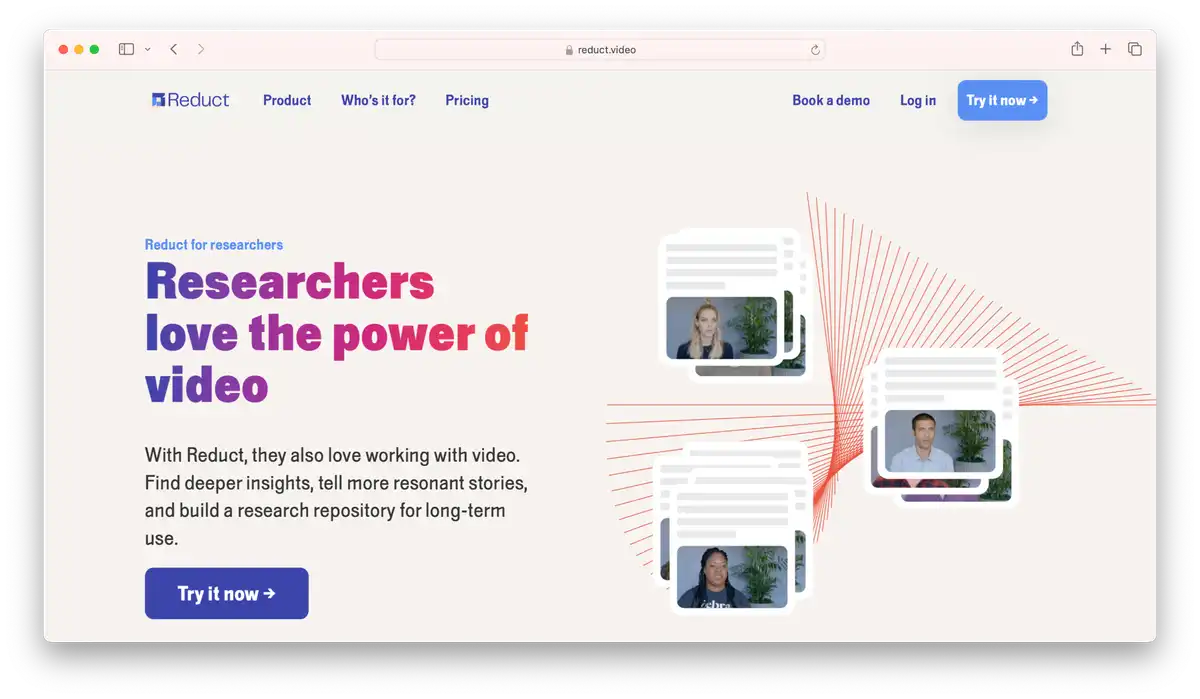
Reduct offers several features that are comparable to Dovetail, focusing on video analysis through text, and boasts some unique functionality you won’t find elsewhere:
a) Transcription & translation: Reduct provides both AI-generated - similar to Dovetail - and human transcription options, but Reduct supports more languages (over 90!), and their AI transcription and speaker labels are more accurate. You also have the added option of upgrading to human transcription for more complex English audio.
b) Searchable repository: Reduct lets you store all of your recorded interviews, without worrying about file formats or filesize. Reduct offers powerful search capabilities across your repository, with both exact and fuzzy search to quickly find relevant clips and insights.
c) Highlighting and tagging: You can highlight important segments within recordings and create captioned video clips from these highlights with just a click. For more in-depth analysis, you can also tag these highlights, and organize insights in an infinite 2-D canvas, the Videoboard.
d) Collaboration and sharing: Your entire research team can work together in Reduct in real-time - invite commenters to your projects, and share insights with stakeholders with published reels. All this is managed through secure role-based access that works at both project and workspace -levels, with enterprise-grade security.
e) Zoom meeting bot & Live Capture: You can invite Reduct's transcription bot to any meeting or interview by simply pasting the meeting link within Reduct. Once you admit the bot, it automatically transcribes the meeting in realtime and you can start highlighting immediately, and generate a summary with just a click. Reduct's Live Capture feature supports Zoom, Google Meet and Microsoft Teams.
Reduct's AI transcription, search, tagging, clustering, meeting bot and video editing features are much more advanced compared to Dovetail's video capabilities, so if video or audio recordings are the foundation of your qualitative research practice, Reduct is the most powerful and reasonably priced solution on this list.
But if you need a user repository solution that also handles documents, surveys, charts and reports, other options might work better.
💵 Pricing:
-
$50 per editor per month on the Professional plan
-
Includes 25 hours of transcription per editor per month
-
Contact us to know about our customizable enterprise plan
2. Condens
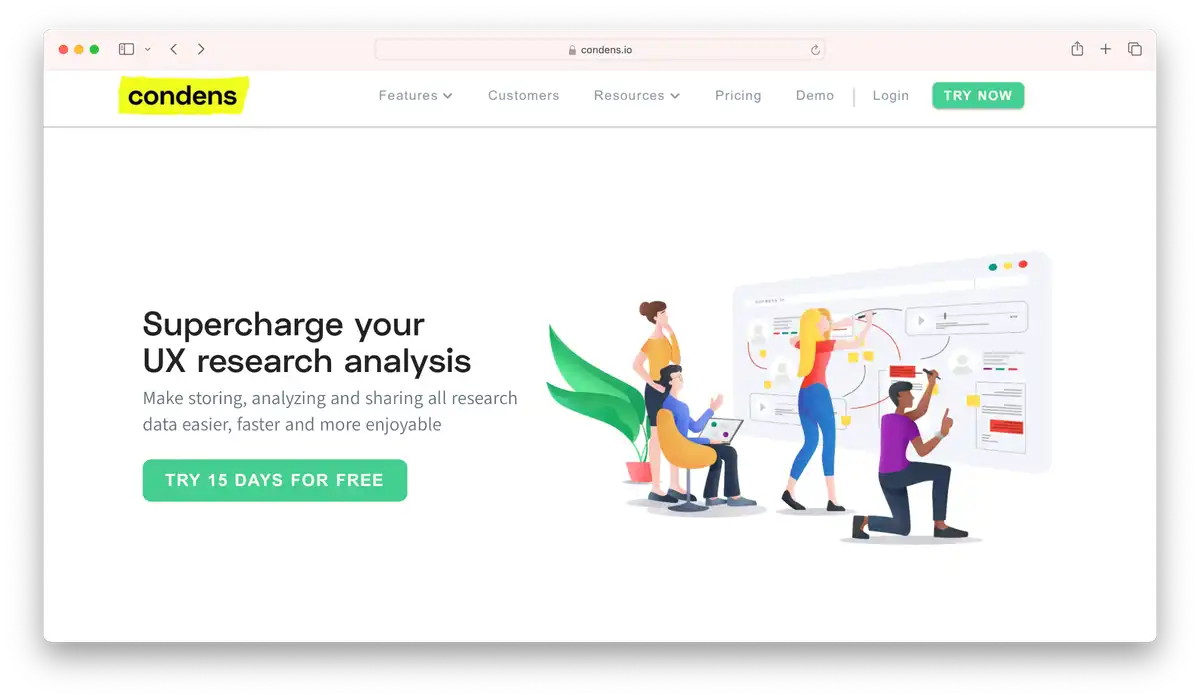
With Condens, you and your team can store, structure and analyze user research data and share findings across your organization.
Condens offers all the standard features that you'd need as a user researcher: AI transcription of video and audio, a robust AI assisted tagging system, a digital whiteboard for affinity mapping, real-time collaboration, a centralized repository for all your current and past research data & findings, participant management and report sharing with stakeholders.
Condens is great for solo or small user research teams because of it’s easy onboarding, simple verbiage (Projects, Participants, Tags, Search, Sessions, Synthesis, Conclusion) and visual tools like the Split View that help you see both raw data and the analysis together in one place.
💵 Pricing:
-
$190 for 3 seats per month on the Team plan
-
Includes 50h of transcription / month
-
$40 per additional researcher
3. Marvin
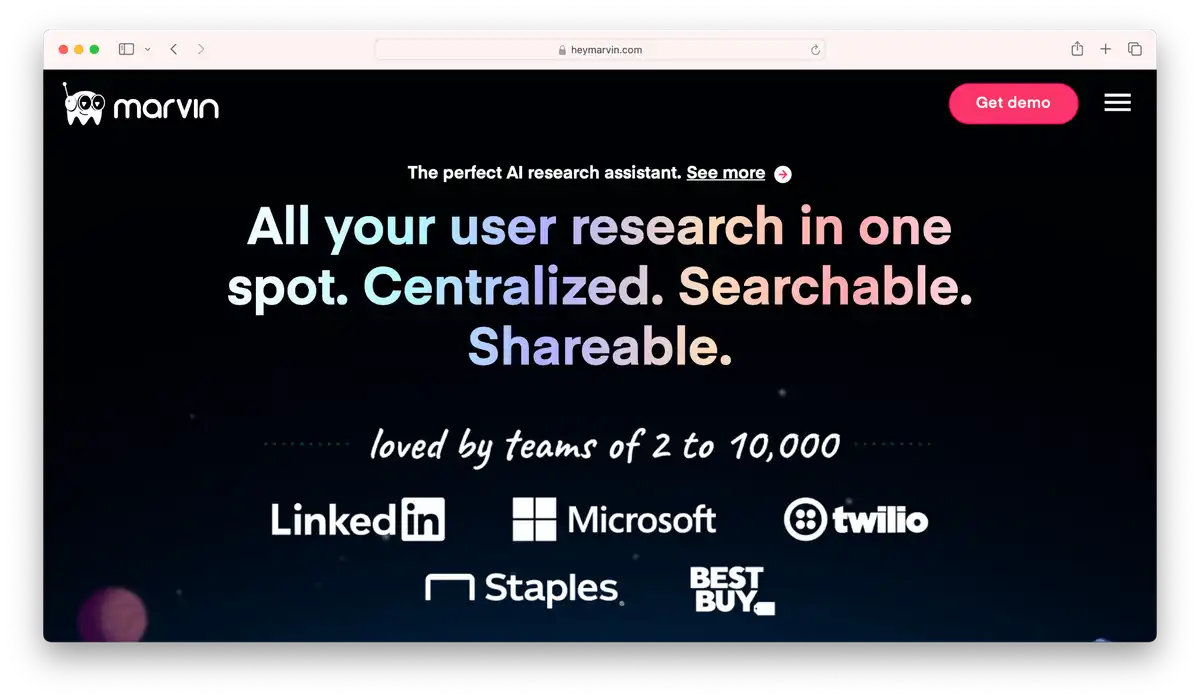
According to their website, Marvin is the perfect research assistant for your qualitative data.
Marvin provides high-quality transcription with automatically generated AI notes for interview recordings.
They have a powerful flow for user research that’s done through Zoom. Researchers can take live notes, use interview scripts that keep track of which questions have been covered, and invite other researchers to watch and take their own live notes, even if they aren’t on the meeting invite.
Their Enterprise plan gives researchers the ability to "Ask AI" about the insights from surveys, interviews and the entire research repository, great for teams that do a ton of research or if you’re under pressure to add AI tooling.
Marvin comes at a cost though, you’ll have to cough up at least $6000 for the Standard plan that competes with Dovetail as a research repo, and that plan still doesn’t have the Ask AI features.
💵 Pricing:
-
$100/user/month, 5 users min, billed annually on the Standard Plan
-
Unlimited free viewer seats
-
Unlimited storage
4. LoopPanel
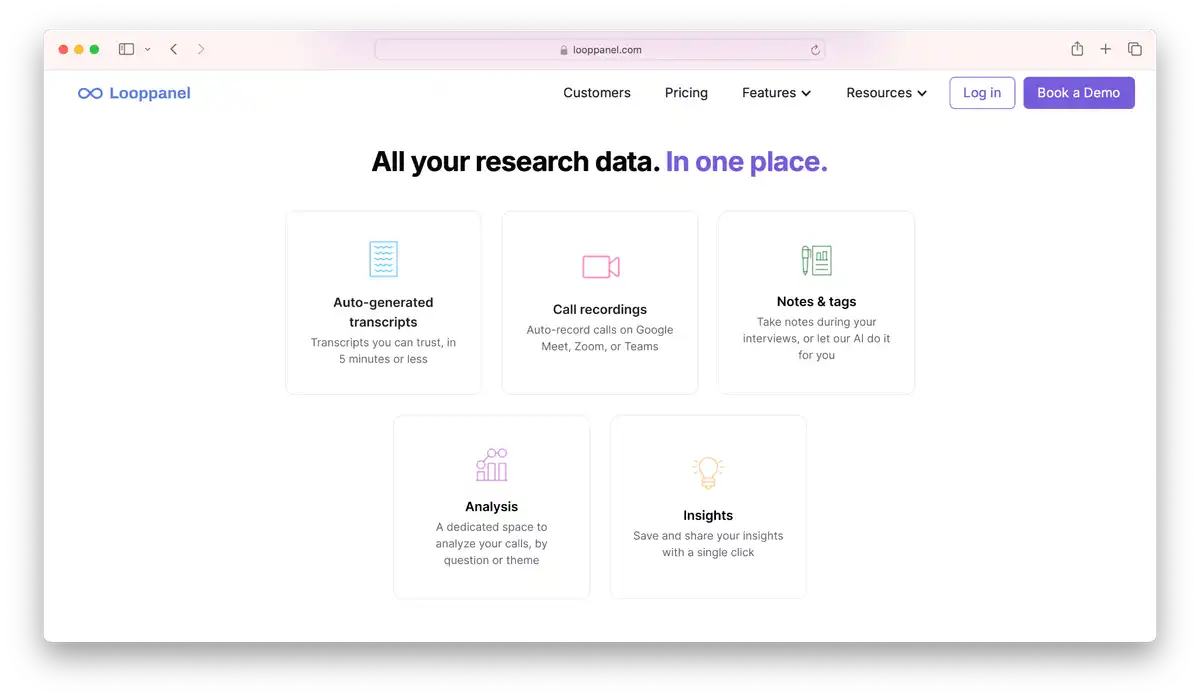
LoopPanel generates accurate transcripts and allows you to take time-stamped notes of key moments live on your research call.
Its AI bot can take take accurate notes like a human assistant, so you can focus on the conversation without worrying about missing key points.
If you find something worth sharing, you can generate video clips from interviews and embed them in Notion or Confluence, which is useful for presenting insights to stakeholders.
If you’ve been using a transcription tool like Otter and feel the need for a simple analysis layer on top, LoopPanel can slide right in because of it’s features and flat pricing.
💵 Pricing:
-
$350 per month on the PRO plan
-
Includes 30 transcription hours
-
Unlimited editor and viewer collaborators
5. Notion
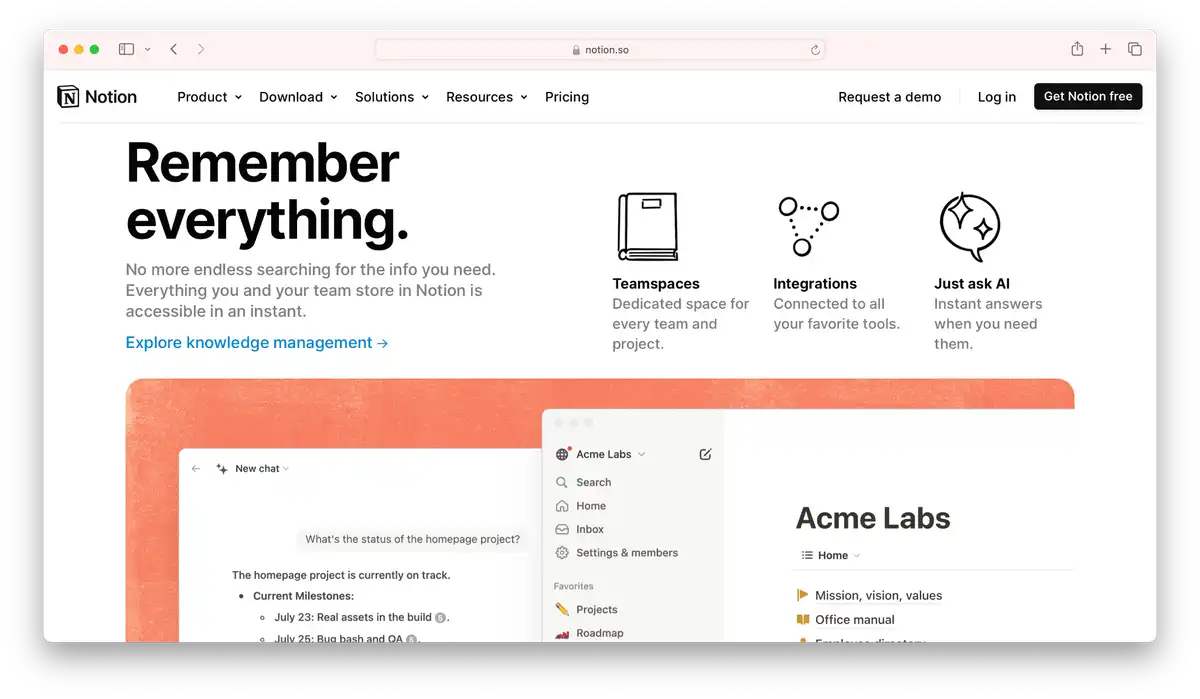
If your team is already using Notion, it can be effectively used as a user research repository. You can store all research-related materials, including documentation, videos, images, and links, in one place. This centralization makes it easy to provide a clear and transparent overview of all research projects.
People outside the research team can easily access and navigate through the research data. It provides a collaborative workspace where multiple users can work together in real time, comment on projects, and provide feedback, similar to Dovetail's collaborative tools.
Researchers can create custom templates in Notion to standardize the way research data is recorded and reported. This feature helps maintain consistency across projects and can be tailored to meet the specific needs of a research team.
Where Notion really shines is how it integrates with various tools like GitHub, Slack, and more, allowing for seamless data import and export. This flexibility is useful for consolidating research data from different sources.
💵 Pricing:
-
$10 per seat/month on the Plus plan
-
Unlimited blocks for teams
-
Unlimited file uploads
-
Invite 100 guests
6. Google Drive
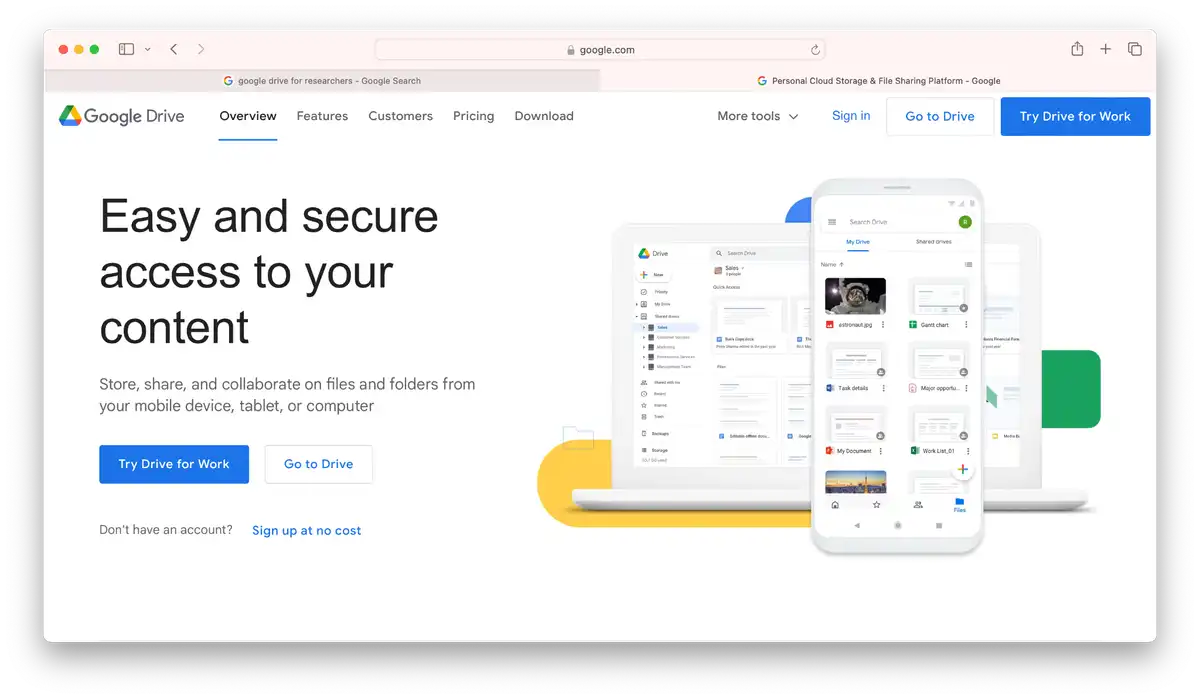
You might be surprised to see Google Drive on this list, but hear me out.
Drive recently added automatic transcription, captioning and search to videos. If your team is on Google Workspace and don’t have a budget for a dedicated research repository tool, Google Drive can be a simple option to archive your research videos and make them searchable throughout the organization.
💵 Pricing:
-
$6 per user/month on the Business Starter plan
-
You’re probably already paying for this
Take your pick
While Dovetail remains a popular choice for qualitative research, its limitations in areas such as pricing, data lock-in and complex user interface have prompted many researchers to explore alternatives.
Tools like Reduct, Condens, Marvin, LoopPanel, Notion and Google Drive offer varied features and pricing that address all of these shortcomings.
Each alternative brings unique strengths, such as Reduct's focus on text-based interview video analysis, Condens' unique split view for seeing raw data and analysis in the same view, Marvin’s Ask AI or Notion's hundreds of integrations and overall stakeholder familiarity.
![[Advancing Research 2022] What Design Research can learn from Documentary Filmmaking](/static/a0a907b113aa60d7720b84b21e85dbaa/06771/documentary-film-meets-design-research.webp)
![[Advancing Research 2022] One Research Team for All – Influence Without Authority](/static/7a076873a172f815d79754f9ec32b970/06771/intuit-breaking-silos.webp)
